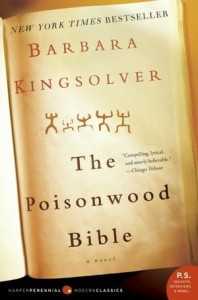 In The Writing Life, Annie Dillard tells of the well-known writer who got collared by a university student who asked, “Do you think I could be a writer?”
In The Writing Life, Annie Dillard tells of the well-known writer who got collared by a university student who asked, “Do you think I could be a writer?”
“Well,” the writer said, “I don’t know. . . . Do you like sentences?”
In prose, the purpose of the sentence is to lead the reader to the next sentence. But more than that: The sentence carries the rhythm, the tone, the meaning of the whole piece. Sentences reveal character and move the action; they create the voice that is unique to the writer and the story.
Here’s a quote I found in my messy compilation of all things writing. Unfortunately, I don’t know whom I’m quoting (apologies, anonymous writer) “A sentence is a form of shorthand for a vast network of feelings, experiences, and contradictions.”
Notes on the sentence:
- Don’t use the same construct for each sentence. For example: subject verb object, subject verb object, or a repetition of sentences beginning with introductory clauses. Use longer sentences, with phrases and clauses when the effect you want is slower, more thoughtful. Use short, straightforward sentences when the action is ramped up. Same with words. Longer words decelerate the forward progression; short words move fast.
- Unless you’re working for the effects of repetition, don’t begin one sentence after the other with the same word, especially if that word is “I.”
- Put sentences in logical order so the reader can follow. Put your words on paper in the order that you want the reader to see the images they represent. (Don’t show what’s in the closet before you open the door.)
- Put emphatic words at the end. A period is a stop sign. The word just before it has the impact. (Sometimes this can make for clumsy reading; make sure the construction doesn’t call attention to itself.)
- Put the most powerful sentence at the end of the paragraph. So that the reader is left with that image during the silence between paragraphs.
- Vary the length of your sentences.
 To find out if you have variety in your sentence length, do a word count on the sentences in a paragraph. One of my favorite paragraphs ever is the second paragraph of Barbara Kingsolver’s book, The Poisonwood Bible. Word count goes like this: 4-12-15-22-11-4-7-23-20-7. And that’s just the count. Here are the words:
To find out if you have variety in your sentence length, do a word count on the sentences in a paragraph. One of my favorite paragraphs ever is the second paragraph of Barbara Kingsolver’s book, The Poisonwood Bible. Word count goes like this: 4-12-15-22-11-4-7-23-20-7. And that’s just the count. Here are the words:
“First picture the forest. I want you to be its conscience, the eyes in the trees. The trees are columns of slick, brindled bark like muscular animals overgrown beyond all reason. Every space is filled with life: delicate, poisonous frogs war-painted like skeletons, clutched in copulation, secreting their precious eggs onto dripping leaves. Vines strangling their own kin in the everlasting wrestle for sunlight. The breathing of monkeys. A glide of snake belly on branch. A single-file army of ants biting a mammoth tree into uniform grains and hauling it down to the dark for their ravenous queen. And, in reply, a choir of seedlings arching their necks out of rotted tree stumps, sucking life out of death. This forest eats itself and lives forever.”
7. Read your work out loud. This is how you’ll know if your sentences are working, if the rhythm is distinct, if you are repeating words or construction, if there’s music and life an vigor in the words.
Now, go and write beautiful, shapely sentences. Send me your favorites, self-created or those of other writers.

 I come from the writing practice school of writing that says to be good at anything you have to practice. Everybody knows pianists have to train. So do dancers, actors, singers, and athletes. Even artists have sketchbooks, which serve as their practice pages. But there seems to be some vague notion that somewhere deep inside the desire to be a writer is the inherent knowledge of how to go about it. As many bloody-fingered, would-be writer, hip-deep in wadded up paper and frustration can attest, this just ain’t so.
I come from the writing practice school of writing that says to be good at anything you have to practice. Everybody knows pianists have to train. So do dancers, actors, singers, and athletes. Even artists have sketchbooks, which serve as their practice pages. But there seems to be some vague notion that somewhere deep inside the desire to be a writer is the inherent knowledge of how to go about it. As many bloody-fingered, would-be writer, hip-deep in wadded up paper and frustration can attest, this just ain’t so. The focus need not be on what you write, or how you write, or how good or not good the writing is (I prefer to say I’m either “present” or “not present” with the writing), what makes a successful writing practice is regular attendance at the page. Going daily, if possible, to your writing desk or chair or favorite café with pen and notebook and intention.
The focus need not be on what you write, or how you write, or how good or not good the writing is (I prefer to say I’m either “present” or “not present” with the writing), what makes a successful writing practice is regular attendance at the page. Going daily, if possible, to your writing desk or chair or favorite café with pen and notebook and intention.